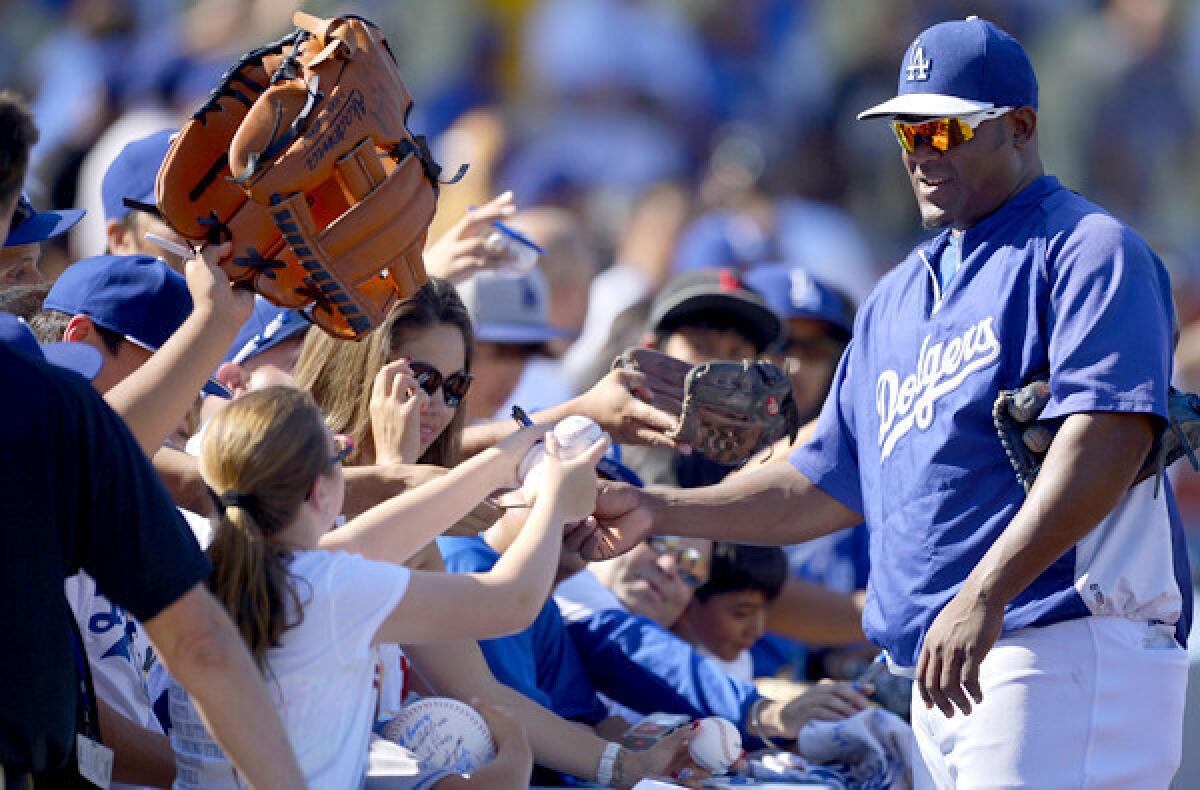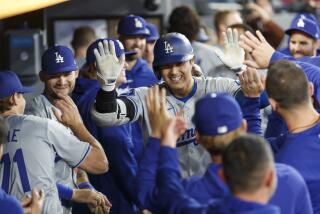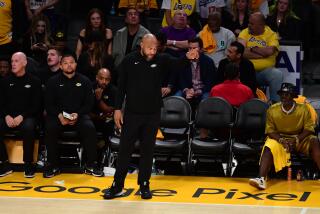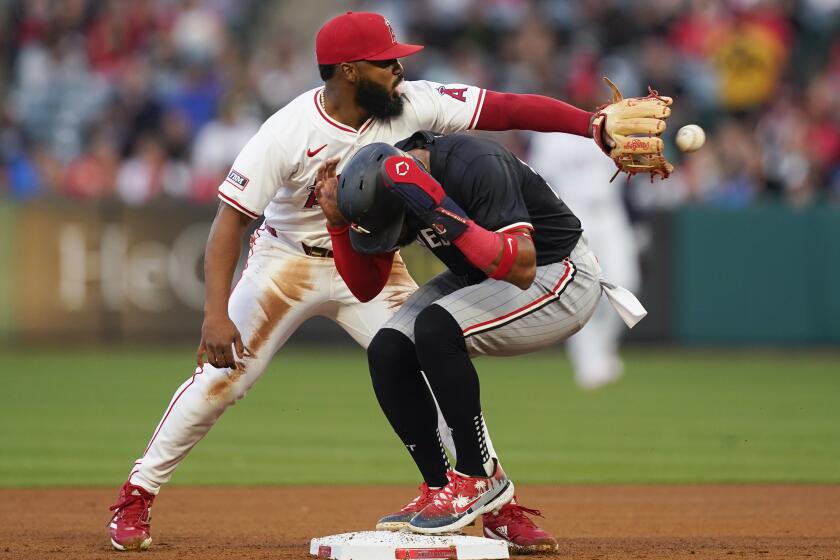Life lessons play out in baseball’s long season

Writing is easy. You take a pile of nouns, you add a bucket of verbs. You put them in a spittoon and swirl them around until you’ve created a story that lasts through eternity.
That’s my secret, anyway. Shakespeare and Twain followed much the same process, though I don’t think those two hacks ever articulated it quite this eloquently.
Know what’s hard? Baseball, a.k.a. hardball — a game so difficult they have to play 162 of them just to decide who makes the postseason, then another dozen or two just to pick a champion in the rawness of pre-winter.
Just as Walmart is laying out the first Christmas wreaths, that’s when you finally have a World Series, which is what makes it such a masterpiece.
But, Lord, baseball’s a long, painful process. Dusty. Deadly. Sweaty. Larcenous of our good nature. On average, a baseball can come off a major league bat at more than 80 mph, spinning like the devil’s soul. The line drive that clipped pitcher Alex Cobb a couple of weeks ago was clocked at 102. Giancarlo Stanton’s 114 mph hits eclipse the speed of a dirty thought.
So we teach baseball to kids from an almost embryonic age, not because it’s difficult to master, but to instill in them the idea that this cursed, laborious sport is mostly — like life — a matter of outlasting difficult times.
We teach kids baseball at a very early age because they’re going to hit things with sticks anyway, so why not line drives?
And a bad baseball stance isn’t just a bad stance, it’s a crucifixion.
Weight back. Hands up. Elbow down. Toes down. Heels up. Who could do all that?
Remember “Squish the bug?” These days, nobody squishes the bug anymore. Now it’s all about turning the hips. Or keeping the palms flat. Or rolling the wrists, I forget. Next week, it’ll be something else.
The little batting cage of our father’s day has been replaced by giant warehouses filled with the latest equipment, video cameras, medicine balls and tutors charging $50 for a half-hour lesson. “Turn those hips,” the instructors say. “Quick hands. Cash or credit?”
Baseball players are born, and then they’re made, not with gimmicks you find on the Internet, or conditioning coaches, or $400 bats. If $400 bats were the answer, Brentwood — not the poorest parts of the Caribbean — would produce the very best players.
Baseball is repetition. Baseball is heartbreak. Baseball is humor. On my son’s team, one 9-year-old pulled his athletic cup out of his pants in the middle of a game to lend to a buddy who’d unexpectedly been chosen to catch the next inning.
“Hey, let me borrow your cup,” the buddy said.
“OK,” said his pal, and dug deep into his britches.
Baseball is both the best friend you ever had and the worst.
And now, with youth teams heading into playoffs, after months of tournaments ruined only by the angry shouts of so-called adults, and my brain bleached of all other thought, I can assure you this much:
• The team with the most pickup trucks usually wins.
• There is no spectator experience better than watching your own child play.
• Unless you’re his mother. And he’s pitching.
You can always tell the mother of the pitcher. She watches through her fingers while swearing she can’t bear to watch. Other mothers huddle around her, offering her encouragement, gum, smelling salts, rum. Because they know in another inning, it could be them instead.
At crucial times, the winning run on third, the mother of the pitcher will rise like Glenn Close in “The Natural,” and a heavenly aura will surround her, a butterscotch lick of late-afternoon sun that she wears like an angel’s wedding dress.
The mother will rise because she knows her little boy needs her, she’ll rise like those heroes who lift fallen cars off strangers with sudden Herculean strength, and through the power of sheer motherly will, she will encourage her son to throw one more strike, “just one, sweetie, so we can all go home and stop at Dairy Queen on the way, and once back at the house, I can tuck you into bed where you’re safe from danger, safe from this crazy sport.”
But life doesn’t quite work like that. Which is exactly what makes baseball such a masterpiece.
twitter.com/erskinetimes
More to Read
Get our high school sports newsletter
Prep Rally is devoted to the SoCal high school sports experience, bringing you scores, stories and a behind-the-scenes look at what makes prep sports so popular.
You may occasionally receive promotional content from the Los Angeles Times.







